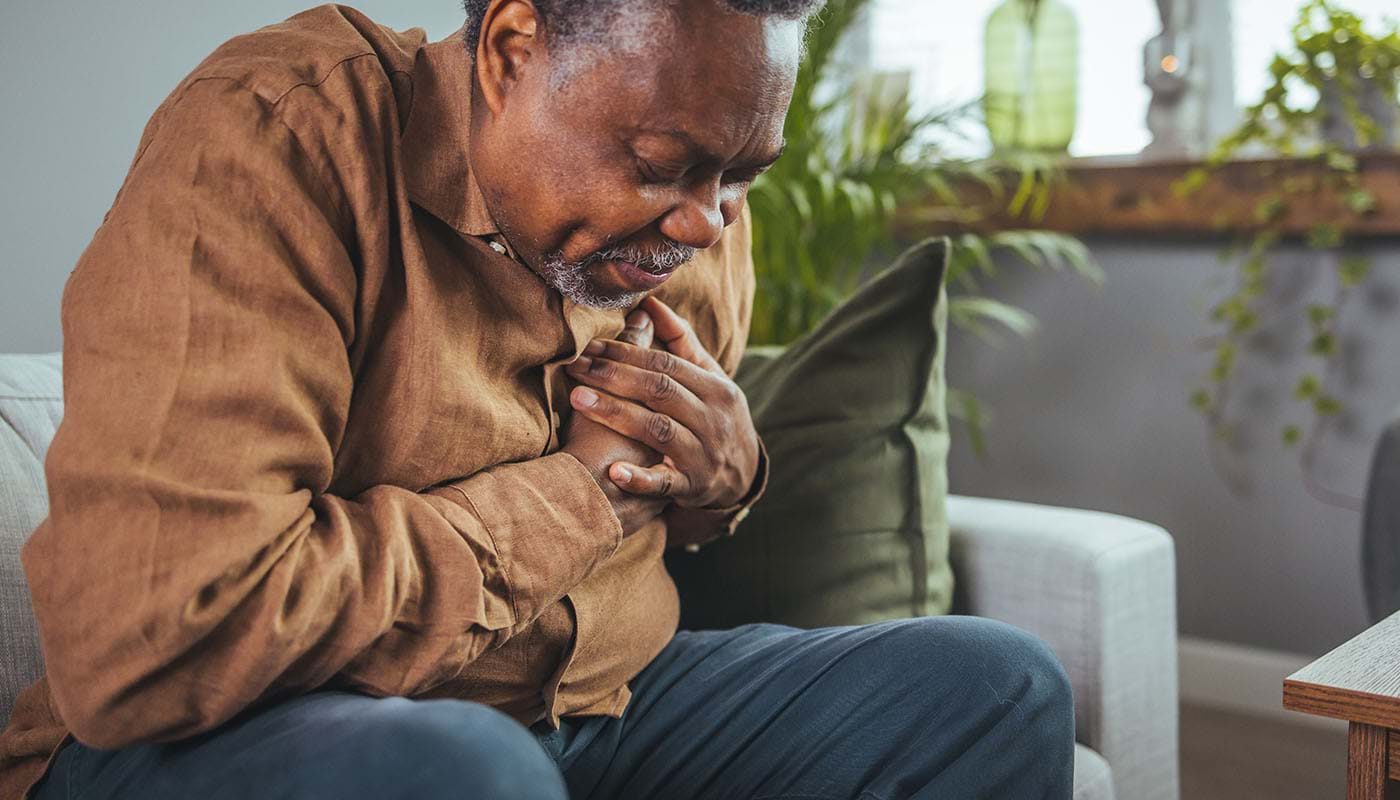
Heart Attacks & Emergency Treatment
Understanding the intricacies of a heart attack is essential for speedy intervention and recovery. At Dr Moedi’s Cardiology practice, we provide timely assistance for heart attacks and urgent emergency care related to your heart health.
What is a heart attack?
A heart attack, medically known as a myocardial infarction, happens when part of your heart doesn't receive enough oxygen-rich blood. It’s essentially a blockage of blood flow primarily due to a blood clot, causing the heart muscle to be damaged or destroyed.
The primary reason for this is coronary heart disease (CAD), a leading cause of heart attacks. Heart disease occurs when the coronary arteries, supplying blood to the heart, become clogged with fat deposits like cholesterol. This build-up forms plaques, which can rupture and lead to blood clots, blocking blood flow.
How can I tell if I’m having a heart attack?
Some heart attacks are abrupt and shortlived, but others can begin gradually with moderate discomfort. Everyone experiences heart attack symptoms differently, but the most common ones include:
- Chest pain or discomfort
- Pain that spreads to other areas of the upper body
- Fatigue
- Heartburn
- Lightheadedness or fainting
- Cold Sweats
- Nausea or vomiting
- Shortness of breath
Symptoms tend to vary between men and women. For example, women may experience symptoms not usually associated with heart attacks, such as nausea, shortness of breath and jaw or back pain.
What are the factors that lead to heart disease?
There are various factors that can contribute to the development of heart disease, some of which can be controlled through lifestyle changes. These factors include:
- Diabetes
- High blood pressure
- Obesity
- Family history of heart disease
- Lack of exercise
- Extreme stress
- Smoking
- High cholesterol
- Excessive alcohol consumption
What are your treatment options for heart attacks?
As a seasoned cardiologist, Dr Moedi offers various treatments in the event that you have a heart attack or severe heart disease.
- Medications: Certain medications can help dissolve blood clots, reduce heart damage, or treat other related complications
- Cardiac Catheterisation: This is a procedure where a catheter is placed inside the clogged artery to remove the blockage.
- Coronary Angioplasty and Stenting: This involves widening the clogged artery and inserting a stent to keep it open.
- Bypass Surgery: Here, we perform surgery to create a new pathway for blood flow if multiple blockages exist.
What steps should I take during a heart attack?
If you or someone you know is exhibiting heart attack symptoms, it's crucial to act immediately — every minute counts. Call your nearest emergency services for assistance. Melomed Gatesville emergency centre can be reached on 021 637 8100 or 0800 786 000.
Early intervention drastically increases your chances of a full recovery and reduces complications. In any cardiac emergency, trust the expertise of Dr Moedi to provide prompt, efficient, and compassionate care. Your heart health is our utmost priority.
Send us a message
Fill in the form below and we will get back to you as soon as we can.